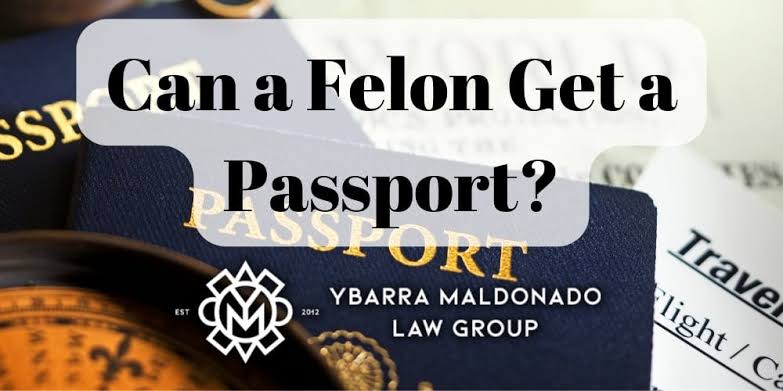Obtaining a passport is a pivotal step for those who wish to explore the world, whether for leisure, business, or personal reasons. But what about individuals with a criminal record? Can felons get a passport? In this comprehensive guide, we’ll address the complex issues surrounding passport eligibility for individuals with a criminal history.
Passport Eligibility Basics
Let’s start with the basics. In the United States, the U.S. Department of State is responsible for issuing passports. While many people assume that a criminal record automatically disqualifies them from obtaining a passport, this is not necessarily the case. The Department of State does not routinely inquire about an applicant’s criminal history when processing passport applications.
Outstanding Warrants and Legal Obligations
One significant factor that can impact passport eligibility for felons is the presence of outstanding warrants, probation, parole, or other legal obligations stemming from their convictions. If you have any of these unresolved issues, it may hinder your ability to get a passport. It’s crucial to address these matters before applying.
Specific Offenses and Passport Denials
While most individuals with criminal records can get a passport, there are exceptions. The Department of State may deny a passport to individuals convicted of specific offenses, particularly those related to international drug trafficking or sex tourism. However, these cases are relatively rare and generally involve severe criminal activities.
Travel Restrictions and Visa Requirements
It’s important to remember that having a passport does not guarantee entry into other countries. Each nation sets its own entry requirements, and some may deny entry to individuals with certain criminal records. Before traveling internationally, research and understand the entry requirements of the specific country you plan to visit. Some countries may require you to apply for a visa even if you have a valid passport.
Applying for a Passport with a Criminal Record
If you have a criminal record and are eligible for a passport, the application process is similar to that of any other applicant. You’ll need to complete the appropriate application form, provide required documents, and pay the associated fees. Ensure that all the information you provide is accurate and truthful.
U.S. Customs and Border Protection (CBP)
When returning to the United States, travelers should be aware that U.S. Customs and Border Protection (CBP) officers have access to criminal databases. While having a passport itself won’t necessarily trigger scrutiny, CBP officers can inspect travelers and may ask questions about their criminal history. It’s crucial to be honest and forthcoming during these interactions.
Consult with Legal Counsel
If you have concerns about your specific situation, it’s advisable to consult with legal counsel experienced in passport-related matters. An attorney can provide guidance on navigating any legal restrictions and help you understand your rights and options.
Conclusion
In conclusion, the question “Can felons get a passport?” doesn’t have a one-size-fits-all answer. While many individuals with criminal records can obtain passports, there are exceptions and complexities to consider. Understanding your unique circumstances, addressing any legal obligations, and being informed about travel restrictions are essential steps in the process. If you’re uncertain about your eligibility or have questions about passport-related issues, seeking legal advice is a wise course of action. Remember, knowledge is power, and with the right information and guidance, you can navigate the passport application process successfully.
My name is Diana Moore , focus on innovation mindsets . As I believe in working hard and putting the soul in my work, I have accomplished so much success and place in SeeHeadlines.Com, and now I have confidence in this, that I am the spin of this network. I have a vision of touching the sky. I wish to see this industry on a global scale one day.

